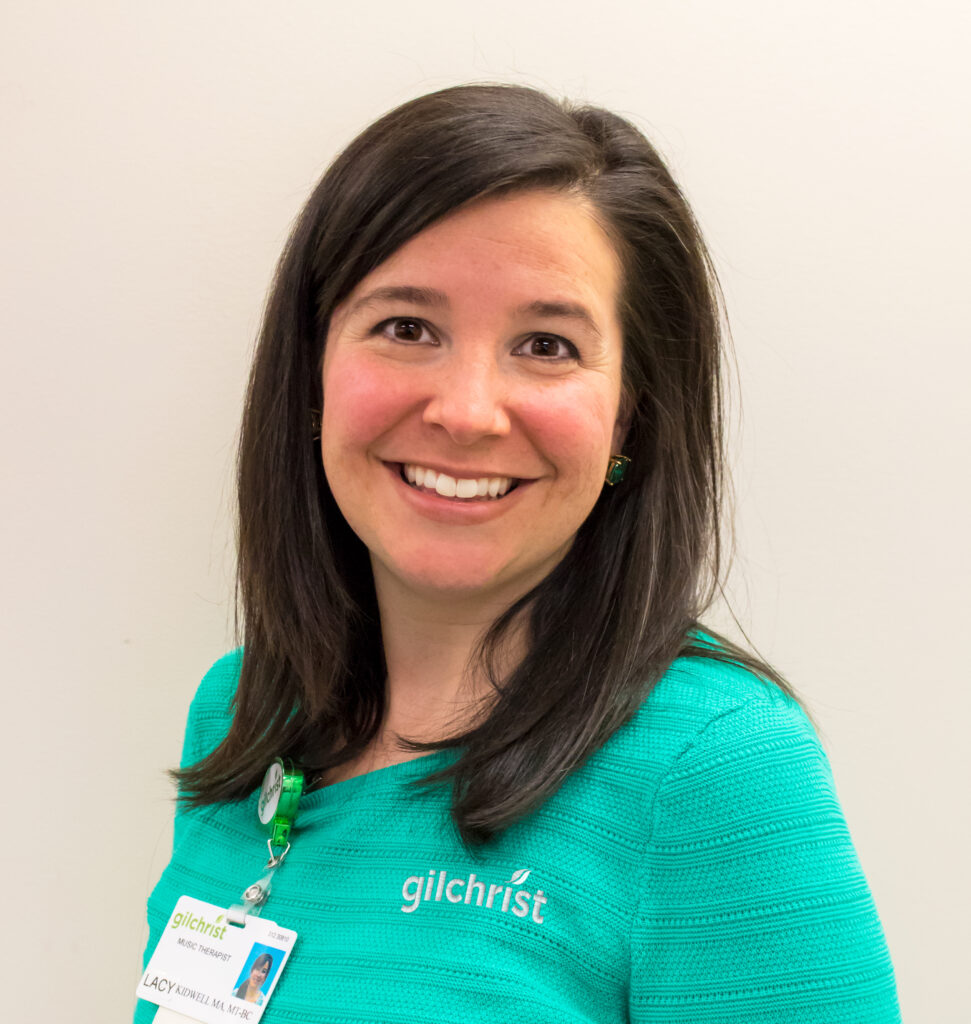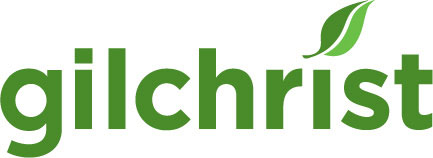Harmony in Healing: The Transformative Power of Gilchrist’s Music Therapy Program
Harmony in Healing: The Transformative Power of Gilchrist’s Music Therapy Program
Lacy Kidwell, Gilchrist’s first board-certified music therapist (MT-BC), pioneered its music therapy program nearly 12 years ago. This program leverages clinical music interventions to enhance patient well-being, targeting physical and mental improvements by stabilizing heart rates, alleviating anxiety, stimulating cognitive functions, and bolstering learning.

Lacy discovered music therapy at The Baltimore School for the Arts during a career day encounter with a music therapist. From that first introduction to music therapy, Lacy was captivated. She immediately saw it as the ideal way to blend her musical talents and desire to help others. It felt like the path she was meant to follow. Lacy first realized the power of music therapy in hospice care after a local tragedy, where she played music to comfort the grieving. Following the session, a woman approached her, expressing, “I don’t know if I could’ve made it through that without the music.” In that moment, Lacy realized it takes a special kind of person to work with the dying and bereaved. Lacy reflects, “Hospice has always been a calling for me.”
As Gilchrist marks its 30th anniversary, the organization takes pride in its music therapy program, which gives patients and families the time to engage with one another and it brings laughter back into what might be a sad space. As patients reach their final days, music can be a wonderful tool for reflecting on their accomplishments and relationships and really celebrating life. “Music can instantly (within seconds) evoke feelings not experienced for years and completely change the mood of a person and bring back beloved and cherished memories that may have gone forgotten,” Lacy says.
One of the most significant challenges faced by music therapists is gaining acknowledgment from the medical community regarding the efficacy of music therapy as a legitimate and impactful treatment modality. “While things are changing and music therapy is becoming more talked about, utilized, and recognized, it is our responsibility to continue to advocate, ensure best practice, and do our best to make services available to anyone who needs it.”
Despite the progression of disease, music remains a powerful medium that many of our patients at Gilchrist can still engage with, finding comfort, pleasure, and joy. It offers a space for meaningful self-expression even when words are no longer possible. Music allows patients and their families to connect with each other in their familiar roles, rather than merely as patient and caregiver. “It brings laughter back into what might be a sad space. And for many of our patients, as they face their final days, music can be a wonderful tool for reflecting on their accomplishments and relationships and really celebrating life,” Lacy concludes.


